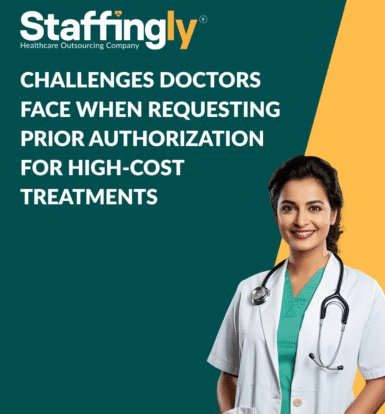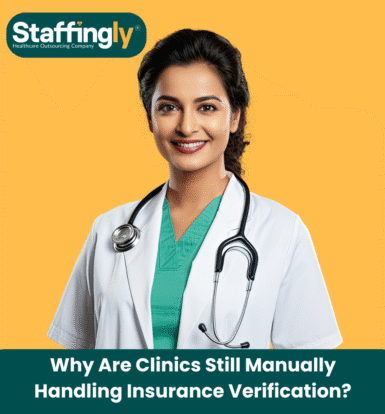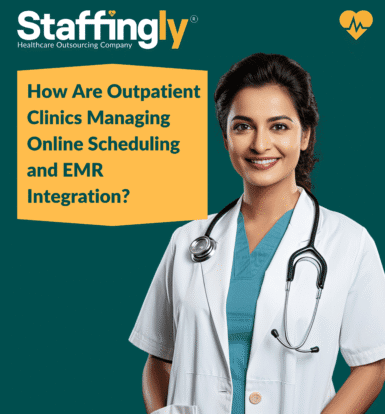On-Demand Outsourcing BPO Services for Healthcare Providers With 24/7 Coverage!
Save up to 70% on staffing costs!
Browse Specialty Staffing Services
Challenges Doctors Face When Requesting Prior Authorization for High-Cost Treatments
Prior authorization (PA) is a process required for many high-cost treatments, specialty drugs, and advanced procedures. It was introduced to reduce unnecessary spending and confirm that treatments are medically necessary. However, this process often creates major difficulties for doctors and healthcare staff. These difficulties not only increase the workload for providers but also cause delays in the care patients require. Understanding Prior Authorization Prior authorization is a requirement from insurance companies that asks doctors to get approval before prescribing expensive

Why Do Medication Prior Authorizations Cause Delays and Burnout in Clinics?
“It was supposed to be an easy position that needed help, but it has become extremely frustrating and defeating,” said a medication authorization specialist describing her daily struggle managing prior authorizations. In many clinics, prior authorization (PA) work has become one of the most stressful and time-consuming administrative responsibilities. Providers prescribe high-cost medications that often require extensive documentation and justification, and when something is missing, it all falls back on the PA team. “We handle all prior authorizations for nine

How Outsourcing and Technology Are Solving Modern Healthcare Challenges?
Healthcare professional forums are buzzing with a critical question: what healthcare problems can actually be solved by outsourcing or technology? One practitioner captured the core frustration: “there’s a long-standing problem with setting appointments with GPs and psychologists, and complaints that medical receptionists are rude almost anywhere.” The discussion reveals something more fundamental than isolated scheduling issues. Healthcare professionals are identifying systemic problems where technology and virtual support could recover “vast amount of clinical time and patient time that can be

The Benefits of Having a Virtual Medical Assistant with Your Practice
Healthcare professionals on Reddit are having real conversations about virtual medical assistants, and the experiences they’re sharing reveal both the potential and the practical realities of integrating remote support into medical practices. One discussion caught attention in the medical scribe community when a podcast episode about virtual medical assistants was shared. The topic sparked interest among healthcare professionals already familiar with remote healthcare support roles, raising questions about how virtual assistants compare to traditional in-office staff and what benefits they

Why Are Clinics Still Manually Handling Insurance Verification?
Healthcare professionals across the East Coast are asking a blunt question: “Why are we still doing insurance verify, pre-auths like it’s 1999??” One clinic administrator who called over 500 PT clinics discovered that around 50% still have staff manually calling insurances for verifications and pre-authorizations, spending 10 to 30 minutes per call. The discussion reveals a deeper tension between automation promises and operational reality. While 37 clinics agreed to pilot AI voice assistants for insurance verification, the majority shut down

How Outsourced Billing Improves Revenue Cycle Management?
Therapists expanding their practices face a familiar crossroads. One practitioner captured the struggle perfectly: “I’m considering expanding my practice and hiring clinicians, but I know I’m already feeling overwhelmed with insurance and will need to outsource this somehow.” The question that follows reveals the real challenge: “Do any of you do this and who do you use? It seems like there are a few larger companies that do this and they charge a lot per claim, and with individuals my

How Are Outpatient Clinics Managing Online Scheduling and EMR Integration?
A frustrated patient summed it up best: “I had to call the clinic, sit on hold, give my insurance info verbally, and still had no idea what I was going to owe until I checked in.” That single quote represents what many outpatient clinics are still battling — outdated scheduling workflows, disconnected EMRs, and zero upfront insurance checks. In a recent healthcare forum, professionals across physical therapy, behavioral health, and outpatient practices shared what’s actually happening behind the scenes —

When Insurance Premiums Rise Faster Than Paychecks?
Healthcare professionals across the country are bracing for sticker shock. One family practitioner captured the mounting frustration: “I am at 22% of my income for health insurance premiums for my family of three and am not looking forward to the increase in premiums yet again.” The numbers are staggering. If Congress lets ACA subsidies expire, premiums across marketplace plans will jump an average of 114%. Even employer-based plans aren’t safe, with projected increases of 6.5% – the biggest spike in
 Book a Demo to Build Your Team Today!
Book a Demo to Build Your Team Today!


 Read Case Studies
Read Case Studies 



 Virtual Medical Assistants
Virtual Medical Assistants



